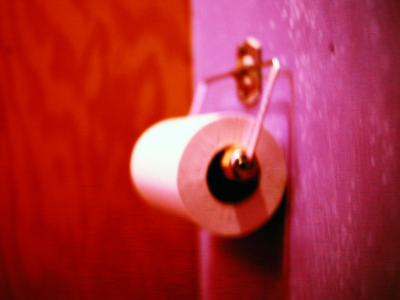 Let’s face it: everybody poops.
Let’s face it: everybody poops.
Going number two allows your body to eliminate waste and undigested food through your intestines, cleansing your body. We all know it’s important to do it, but we also have questions that we may be too embarrassed to ask.
Don’t be shy – your bowel movements tell you a lot about your body, so it’s important to know the answers. Here are four common questions people have about going to the bathroom:
1. “How often should I be going?”
Everybody’s “poop schedule” is different: what is normal for you may be abnormal for someone else. Some people poop up to three times a day, and some only three times a week. Most people have a routine and go the same number of times a day, around the same time. Just take note of your normal so that you can tell if something isn’t right.
2. “What are some factors that affect how often and when I go?”
Diet: A healthy diet must contain fiber because it is essential for helping with regular bowel movements. Our small intestines can’t break down fiber, so it passes through our colons, helping to maintain normal intestinal function and help produce a stool. Without fiber, you could run into problems. Add more fiber to your diet by eating foods like broccoli, almonds, lentils, and chickpeas.
Fluid Intake: Your large intestine absorbs any excess water in your body, so drink lots of fluids to keep your stool soft and easily passable. Without fluids, stool can harden, which makes it more difficult to go. If you’re constipated, drink a glass of water to get things flowing.
Activity Levels: The more active you are, the easier it is for your colon to move stool through your intestines. Doing some exercises, like walking, running or water aerobics, can help get everything moving when you experience constipation.
3. “What color should my poop be?”
Stools come in a range of colors. All shades of brown and even green are considered normal. See your doctor right away if you see red or black in your stool, because it can indicate the presence of blood.
4. “When do I need to see a doctor?”
Take note if you notice changes in your bowl pattern, such as if you experience an increase in the number of times you go, or if you are excessively constipated. Also, take note if you have any pain or cramping when you try to go. If you experience any change in signs or symptoms, see your doctor immediately.
The bottom line is that everybody’s poop is different: it comes in different colors, shapes, sizes, and schedules. If you’re sticking to your own (mostly regular) schedule and don’t notice any significant changes, you’re probably in good shape. If you notice any changes, have any questions or concerns, see your doctor immediately.
Dr. Lynn M. O’Connor dedicates her practice to providing the foremost treatment, technology, and information related to preventive public health issues and colon and rectal health. An outstanding surgeon and health advocate, Dr. O’Connor is also the Director of the Women’s Colorectal Care Program for ProHEALTH Care Associates in the Greater New York City area. Click HERE to contact Dr. O’Connor’s office, or to schedule an appointment.
This blog provides general information and discussion about health, medicine, and related subjects. The content provided in this blog, and in any linked materials, are not intended and should not be construed as medical advice. If you have a medical concern, you should consult with a licensed physician or appropriate health care worker. If you think you may have a medical emergency, call your doctor immediately. The views expressed on this blog and website have no relation to those of any health care practice, hospital, or other institution with which the author is affiliated.




